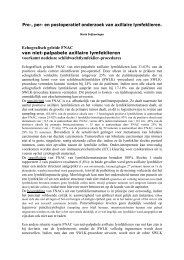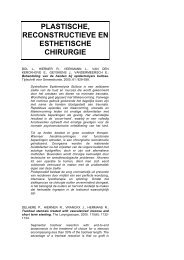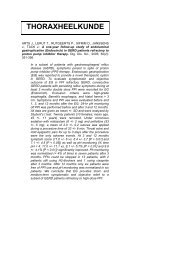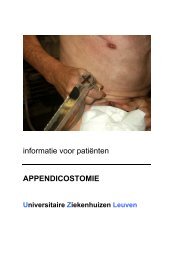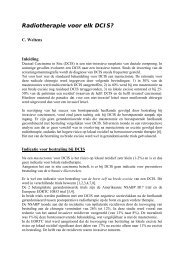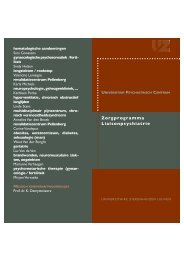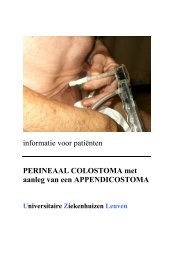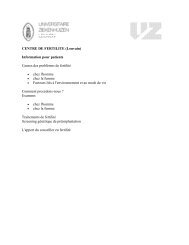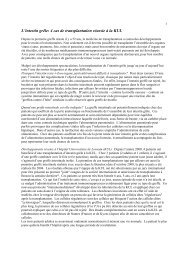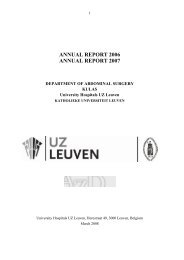2006 - UZ Leuven
2006 - UZ Leuven
2006 - UZ Leuven
You also want an ePaper? Increase the reach of your titles
YUMPU automatically turns print PDFs into web optimized ePapers that Google loves.
DEPREST J., ZHENG F., KONSTANTINOVIC M., SPELZINI F.,CLAERHOUT F., STEENSMA A., OZOG Y., DE RIDDER D.: The biologybehind fascial defects and the use of implants in pelvic organ prolapserepair. Int. Urogynecol. J., <strong>2006</strong>; 17: S16-S25.Implant materials are increasingly being used in an effort to reducerecurrence after prolapse repair with native tissues. Surgeons shouldbe aware of the biology behind both the disease as well as the hostresponse to various implants. We will discuss insights into the biologybehind hernia and abdominal fascial defects. Those lessons from“herniology” will, wherever possible, be applied to pelvic organprolapse (POP) problems. Then we will deal with available animalmodels, for both the underlying disease and surgical repair. Then wewill go over the features of implants and describe how the hostresponds to implantation. Methodology of such experiments will bebriefly explained for the clinician not involved in experimentation. Aswe discuss the different materials available on the market, we willsummarize some results of recent experiments by our group.DE RIDDER D.: Antimuscarinics and cognitive function. Eur. Urol., <strong>2006</strong>;50: 211-212.In recent years antimuscarinics have been studied extensively afterdecades of silence. For many years oxybutynin formed thecornerstone of the treatment for overactive bladder (OAB). Currently,trospium chloride, tolterodine, solifenacin, and darifenacin have madeit to the market. Despite many studies the clinician might wonderwhere the differences among these products lie. One aspect, namely,the antimuscarinic side-effects on cognitive function, has beenneglected by urologists.A close relationship exists between central cholinergic activity andinformation processing in the brain. Studies on vigilance, memory,problem solving, stimulus processing, and response processing haveshown the importance of the cholinergic system. Acetylcholinesteraseinhibitors are being prescribed in the treatment of dementia andcognitive impairment in an attempt to improve the cholinergictransmission.136



